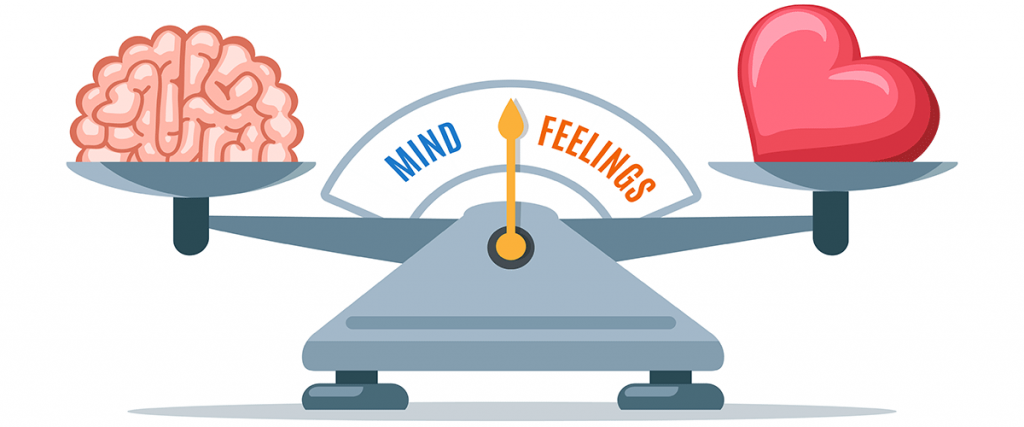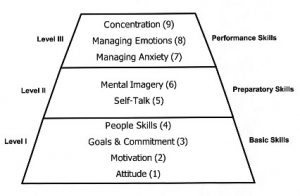Mental skills tips and advice for rugby coaches

The three building blocks for performance
The main building blocks rugby athletes will need to establish in order to perform at his or her peak are:
- physical skills
- physical fitness
- mental skills
The modern view is that at an elite level it is the mindset and mental skills of an athlete sets him or her apart, rather than his or her physical skills or attributes. Case in point, Richie McCaw – recognised as one of New Zealand’s all-time rugby greats – is better known for his mental resilience than his skills or fitness.
What is a mental skills coach?
A mental skills coach essentially teaches individual rugby players and whole rugby teams the psychological skills they can use to improve their performances, both in training practices and in matches.
Mental skills coaching is focused on “training the mind”. It should compliment the physical side of your rugby training program.
Mental skills coaching is generally used with professional teams rather than with amateur and junior rugby teams. That said, coaches at all levels, including junior teams, will be amazed how much extra effort they get from a team when the athletes are in a good mental space.
A mental skills coach is most often a qualified Sports Psychologist.
The growth of mental skills coaching
Over the past few years in sports like rugby union we’ve seen a marked increase in demand for mental skills coaches. This is driven by a few key trends:
- the publicity from players, in particular professional players like Johnny Wilkinson and John Kirwan, about playing with depression.
- more money in the game, enabling the top coaches to employ sports psychologists to take their team’s performance to that next level.
- more focus from player unions on the mental well-being of players.
- the higher success rates of teams that use mental skills coaching.
- teams “choking” during big pressure matches, such as a Rugby World Cup final, showing coaches how pressure can cause radical fluctuations in performance at critical times.
- a better understanding that mental skills can be coached, rather than it being an inherent trait.
What can a mental skills coach help with?

There are a number of things a mental skills coach can be employed to do:
- focus on enjoyment rather than anxiety
- getting into the zone or a “flow state”
- helping players manage nerves
- performing under pressure
- over-thinking
- goal setting
- visualisation, meditation and self-talk
- dealing with the highs and lows of sports
- mental strategies pre-,during and post- match
- being more present, also known as attention or concentration training
- managing the pressure of crowds, fans and the press
- dealing with perfectionism and failure
- mindfulness and wellness
- building resilience
- choosing and maintain a positive attitude
- being self-motivated
- team work, dealing with people and personality types
- managing emotions
Integrating a mental skills coach
As a coach you will need to approach mental skills training with your team quite delicately. For some players a mental skills coach will be regarded as a “shrink for players that have mental issues”.
Be sure to emphasise the benefits of training both physical and mental skills. Also ensure you discuss with your mental skills coach how to best integrate him or her into the team.
Popular techniques used by sports psychologists & mental skills coaches

Here are a few general techniques sports psychologists and mental skills practitioners use:
- Visualisation. Players and ex-rugby legends, like Richie McCaw, swear by it. Visualization is the mental skills practice of imagining details of how you want to perform a particular skill.
Breath-holding or deep breathing techniques. Staying calm and focused during a rugby match can be challenging. To help, we often see a rugby team taking deep breaths as a unit during half-time before discussing their approach for the second half.
Whereas shallow breathing can make a player feel stressed and unable to think, taking deep breaths as a team helps the players to:
- calm emotions such as anxiety, anger and tension, and manage their physiological responses to the situation
- feel connected as a team
- open up the senses, such as listening to what the team and coach are about to discuss
Rugby teams use deep belly or diaphragmatic breathing, the primary deep breathing technique, including long exhale.
Diaphragmatic breathing, also known as deep belly breathing, is slow and rhythmic, where a player focuses on breathing from his diaphragm and making his abdomen expand as he inhales. This type of breathing helps to reduce stress, anxiety, and tension in the body while also improving blood circulation and oxygenation.
Long exhale breathing is a form of diaphragmatic breathing that focuses on exhaling slowly and deeply. This breathing technique uses slow, controlled breathing with exhales longer than inhales and no breath-holding in between.
Long exhale breathing is a relaxation technique that helps activate the parasympathetic nervous system, calming a player’s body and mind. This type of breathing helps to create a sense of calm in the body. It can be especially beneficial for players feeling overwhelmed or tense and can also help reduce any feelings of panic or fear and promote relaxation and focus.
- Positive self-talk. That “voice” inside your head has a huge impact on your performance and how you feel before, during and after playing a game or practicing rugby. Positive self-talk, positive affirmations and visualization go hand in hand.
- Achieving a “flow state”. Some practitioners also refer to this as being “in the zone” though we prefer the notion of flow as it is continuous. By “flow”, it’s that state of mind we enter when we are 100% absorbed in a task, when everything else, like the crowd or a parent shouting from the side, is blanked out. You are totally focused on what what you are doing, at one with the task you are performing (e.g. hitting a ruck or tacking a kick). You are feeling relaxed, totally in control of your performance and in rhythm. Mental skills coaches may use some of these techniques to help rugby players achieve a flow state:
- Setting achievable, clear goals with a process to achieve them.
- Using techniques, such as meditation, to help you concentrate and keep in the present moment, on what you have to do next, rather than ruminate.
- Helping you develop an inner motivation and passion for what you are doing.
- Encouraging a feeling of control, that you have the skills to achieve the goals of the task and are ready.
- Surprise. Anger. Realization. Acceptance. Honesty. SARAH is a mental process that individuals and athletes, including rugby players, often follow when something does not go the way it should have e.g. when a kicker misses an important kick. The more emotionally intelligent players tends to process their feelings quickly, accepting what happened and immediately becoming present again rather than spending the rest of the game ruminating about what would have happened if the kick had not been missed.
- The “blue” and “red” head system. You will hear coaches and teams talk about playing with “fire in the heart and ice in the mind”. The theory behind the “red” and “blue” system is that during a game of rugby, the player’s mind generally follows two processes. “Red” is about emotion, instinct, gut feeling and taking a fight, flight or freeze path. An example of a “red” moment is a team that “chokes” under pressure. “Blue”, on the other hand, is about engaging the analytical or more logical thinking brain. Ultimately, both the “red” and “blue” systems are needed to perform well. Ideally, a mental skills coach wants to teach a team and in particular it’s leadership group how to use the “red” and “blue” systems together, especially during pressure moments when the “red” system tends to flare.
- The Performance Pyramid. The performance pyramid classifies 9 key skills into three phases: long-term development, immediate preparation for performance, and during performance itself (see image below & description below). Whilst the model appears to be quite linear, the actual skills (e.g. Level 1 “people skills”) are also important when for example playing a game, Level 3. In other words, although each of the nine skills is important, its primary importance will occur during one of the following three phases:

Level 1 (attitude, motivation, goals and commitment and people skills). These mental skills are required for attaining long-term goals, learning, and sustaining daily practice.
